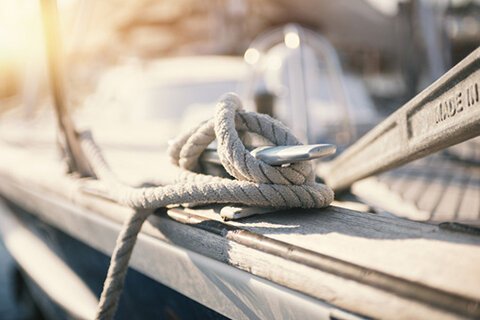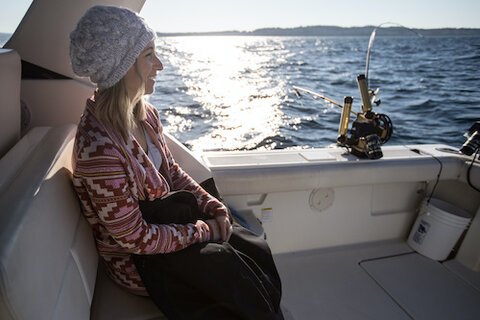Tips on Preparing Your Boat for the Season
Boating is a fun activity that can be shared with the entire family. However, because it can be seasonal, you'll need to perform a few check-ups to get ready for first trip of the season. Some are safety precautions, while others are legal requirements. You may want to consult your local boat mechanic, but there are some things that you can check yourself.
Boat and Trailer Inspections
Check your boat and trailer for the season
To avoid penalties, take care of legal requirements first; you don't want to miss out on the summer fun due to missing paper work. Your registration, license, and decal for the boat should all be up to date.
Once the paper work is out of the way, inspect the hull and all other parts of the boat for damage that may have occurred since the last time you used it. Ensure that the engine is in good working condition, by turning it on and checking that the battery is charged. The navigation lights and all the other electronics on the boat should also be thoroughly inspected.
After confirming that the boat is in good shape and its systems are in working order, check all the safety equipment on board to help ensure a safe trip for you and your passengers. Thoroughly inspect all life jackets twice or more; in particular, look for holes or tears in the jackets. Be sure to check that your life jackets still fit, especially if you have any children who will be on the boat, as children do grow fast. (And remember, you need a life jacket for each passenger.) Your safety gear should also include fire extinguishers, and you should check to make sure each one is full, and in good working condition.
How you get your boat to the water is just as important as making sure it works. You should check the trailer you are using to transport the boat, as well as the tires to make sure everything is safe and in working condition.
Planning for the Unexpected with Your Boat
You should also prepare for any emergency that may occur while you are out on the water. One such emergency is being stranded. Be sure you have multiple ways of communicating with the rest of civilization every time you take out your boat.
Some boating safety items
The longer your planned trip will be, the more means of communication you will need as well as extra batteries for any devices that require them. A radio, flare, and a locator beacon are good choices. While cell phones are okay, you should not rely only on one: the battery could die, or service may not be available where you will be traveling. Be sure to take into consideration the fact that any device you use may get wet. If your boat should take on water, will the device you plan to use still work? If it won't, you will need to have other communication options available.
A whistle makes a great emergency back up; it is loud, uses no batteries, and will continue to work even if it gets wet. A brightly colored flotation device is another great item to have on board. You should also invest in a manual bilge pump for the boat. Though an electric bilge pump is great, you will need a manual pump if you get stranded and the battery dies.
Another vital piece of boating equipment is an anchor. To be on the safe side, the anchor should weigh 1 pound for every foot in length of the boat. Ensure that the anchor is tightly secured to the boat with a rope that that will not sink and is just as long as the boat.
It is always a good idea to have a first aid kit wherever you go, especially on a boat. It could take some time to return to shore and get medical attention if an emergency situation occurs.
Finally, because you never know if something is going to happen to your motor, make sure you have an emergency means of mobility, such as paddles, on board. Keeping a few paddles on your boat can be a big help if your motor dies. The last time we took a group of kids out on a 3-rider towable tube, the motor would not start. We were at the mercy of the current until a passing jet ski towed us in. We had plenty of arm power — just nothing to paddle with!
With all the necessary prep-work out of the way you can take to the water with your loved ones, with the peace of mind that comes from knowing you have what you need to take care of any unforeseen situations. Enjoy the trip!
About the Author
Jane Warren enjoys swimming, scuba diving, boating, tubing, and just about anything else related to outdoor water sports. Because of her love of water sports, Jane manages a website that provides the best towable tubes reviews. Other items include wakeboards, kayaks, water skis, and handheld GPS units.



